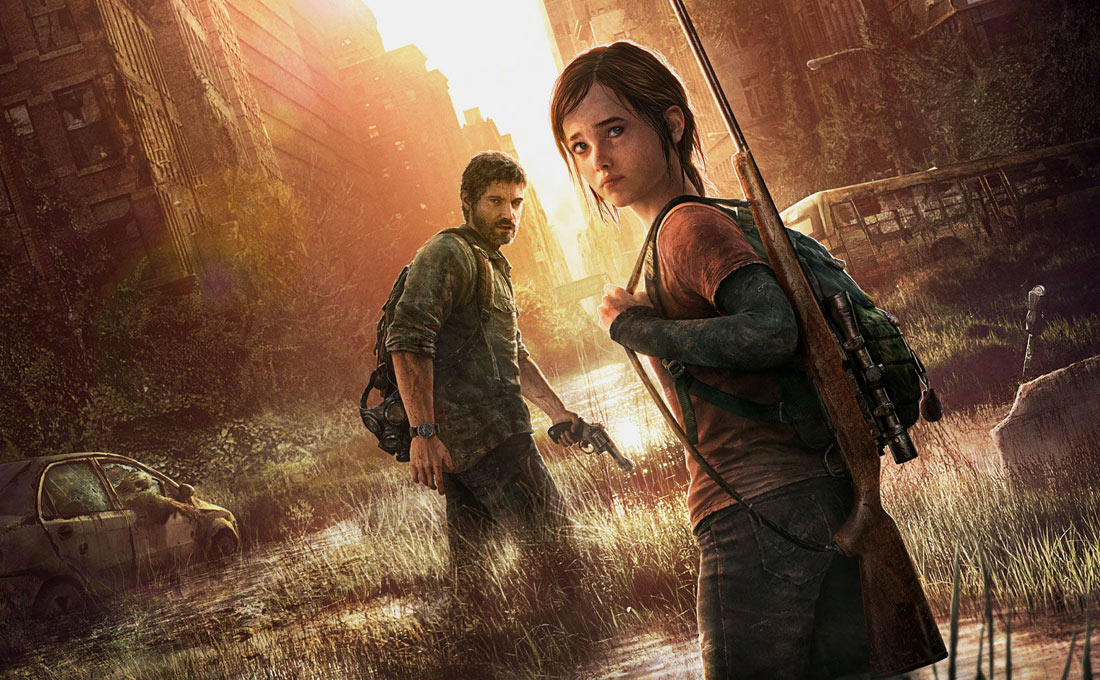Music Box: ‘The Last of Us’
As I write this, I’m re-listening to The Choice, by Gustav Santaolalla. It’s from The Last of Us soundtrack, a Naughty Dog game from 2013. At the time, it was praised heavily and won awards for its emotional and thoughtful story, gameplay, and characterisation. More recently, the sequel was released, and I’ve avoided spoilers so far, as I haven’t managed to find a YouTuber that I want to watch a playthrough with, and don’t own a PS4 in order to play it myself. However, I’m not here to praise the story, or the characters; from the title of this article, you can probably tell that I’m here to talk about the soundtrack.
I came to this game rather late: a zombie-survival story game isn’t the first that would intrigue me, and, being only 12 when the game came out, it certainly wasn’t on my radar alongside Animal Crossing: New Leaf and Skylanders: Swap Force. In early 2017, I was writing for my A-Level English literature coursework beside one of my classmates at the time. Her headphones were leaking a little sound, and I remember asking her to turn it down. Of course, she obliged, and as she switched to the YouTube tab she had open, I asked: “So, what are you listening to anyway?”
There are points in the game, I would argue, that simply would not hit as hard, were there not the soundtrack to work with it.
My friend was more than happy to tell me. She told me how much she adored The Last of Us, and, moreover, how good the soundtrack was for studying. This led to a half hour discussion about how great soundtracks were for studying, until the bell rang for the next class, leaving us with no actual progress on our coursework. However, the name – The Last of Us – stuck in my head, so I looked up the soundtrack that evening and listened to it.
First off, it is a stunning soundtrack. Even the more aggressive tracks like Smugglers and The Outbreak, Santaolalla decides to keep the music quite subtle, using low, warbling notes to create a sense of unease in order to create an unsettling tension rather than the all-too-known chorus of strings for a horrifying moment. (In fact, the soundtrack is entirely devoid of violins, with bass instruments taking the foreground).
For the most part, the tracks are melancholy, soothing tones, punctuated by the ronroco, a South American instrument which Santaolalla uses in order to create the distinctive melody found in the title theme for The Last of Us. This, of course, makes it the perfect background study playlist, as nothing is too overpowering, and can remain as gentle background noise. I put the entire soundtrack on my study playlist, which I still use today, and I have never removed a single track.
The soundtrack has meant a lot to me over the years, and will continue to be my go-to study tunes for years to come.
Further, though, in relation to its place in the actual game – there is no other description other than that the soundtrack is a perfect fit. The mournful melodies are a natural accompaniment to the sweeping shots of nature growing over dilapidated brickwork, and as the game hits meaningful emotional beats, the soundtrack is there to carry the player as the screen fades to black. There are points in the game, I would argue, that simply would not hit as hard, were there not the soundtrack to work with it.
The Last of Us is beautiful as it feels like a realistic and grounded depiction of a zombie outbreak – the main game is set 20 years after the initial ‘virus’ spreads, and humanity is not so vastly panicked. Zombies are a fact that survivors live with, and though society does not thrive, there is no immediacy of chaos seen in games like the Resident Evil franchise. This gives the story room to breathe as the focus is the human response to an outbreak rather than the immediate need to shoot-run-survive.
As the story has room to meander gently through nuanced character arcs, so does the soundtrack enable this. I never felt as though the soundtrack overpowered, nor was it forgettable. I am very glad I had that conversation with my classmate – the soundtrack has meant a lot to me over the years, and will continue to be my go-to study tunes for years to come…

Comments